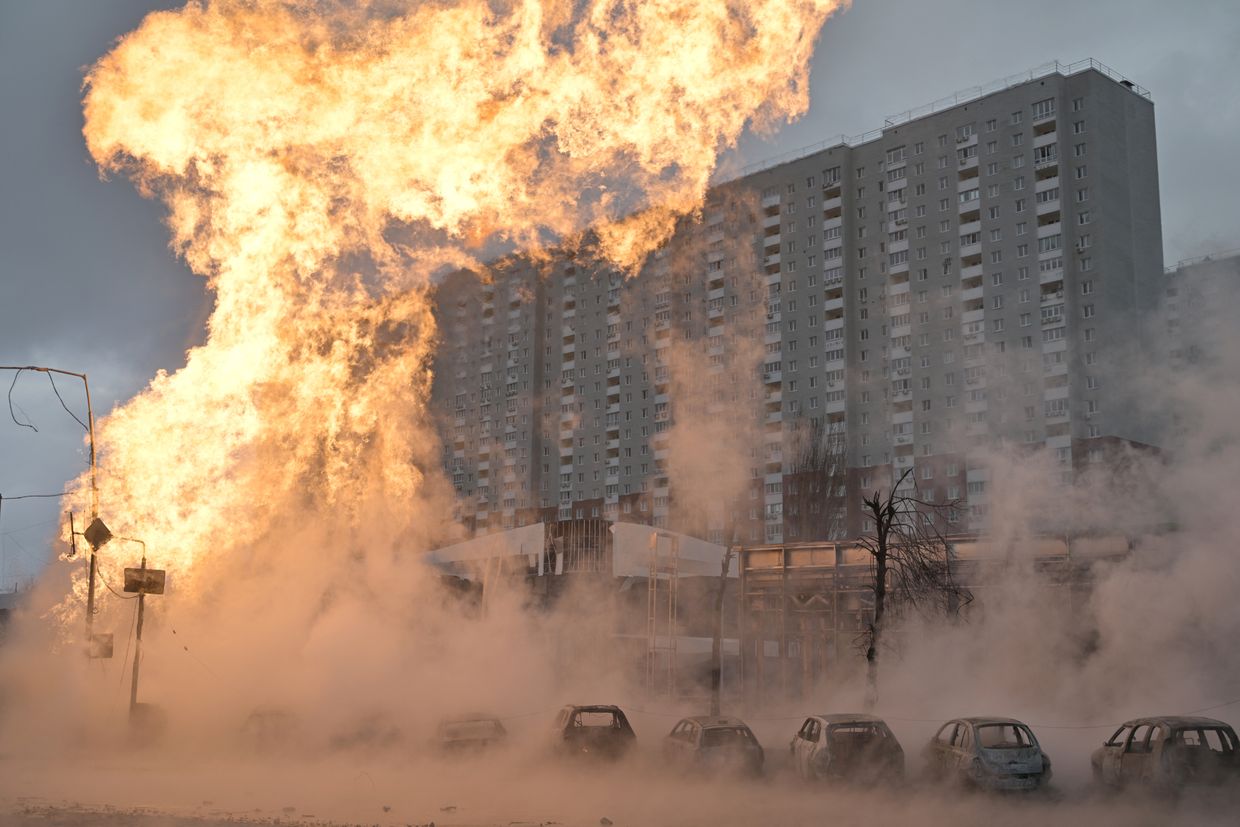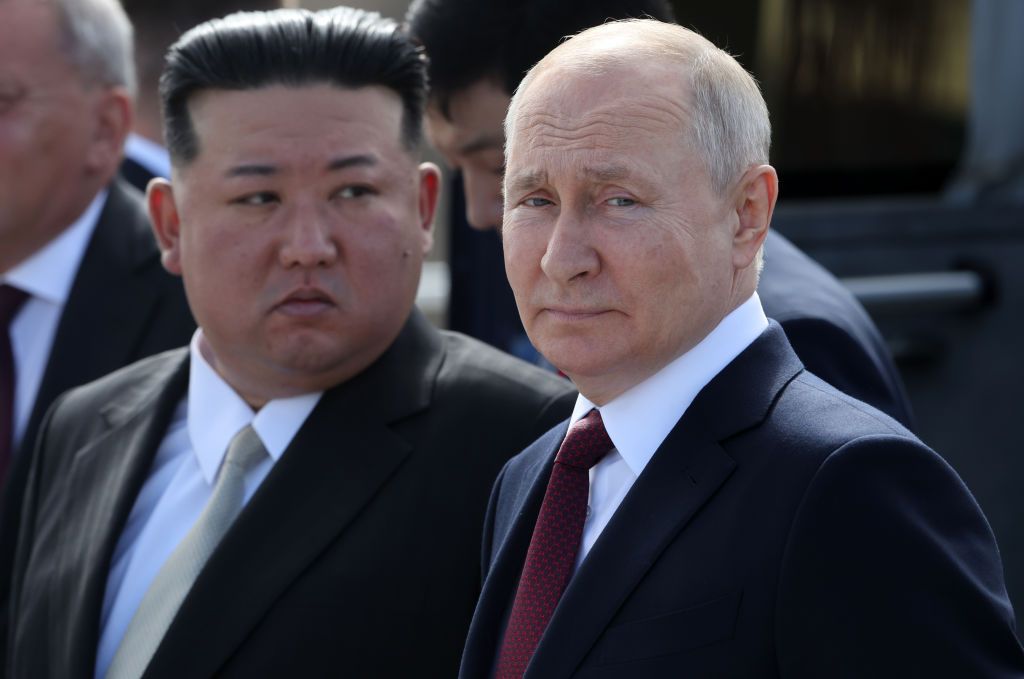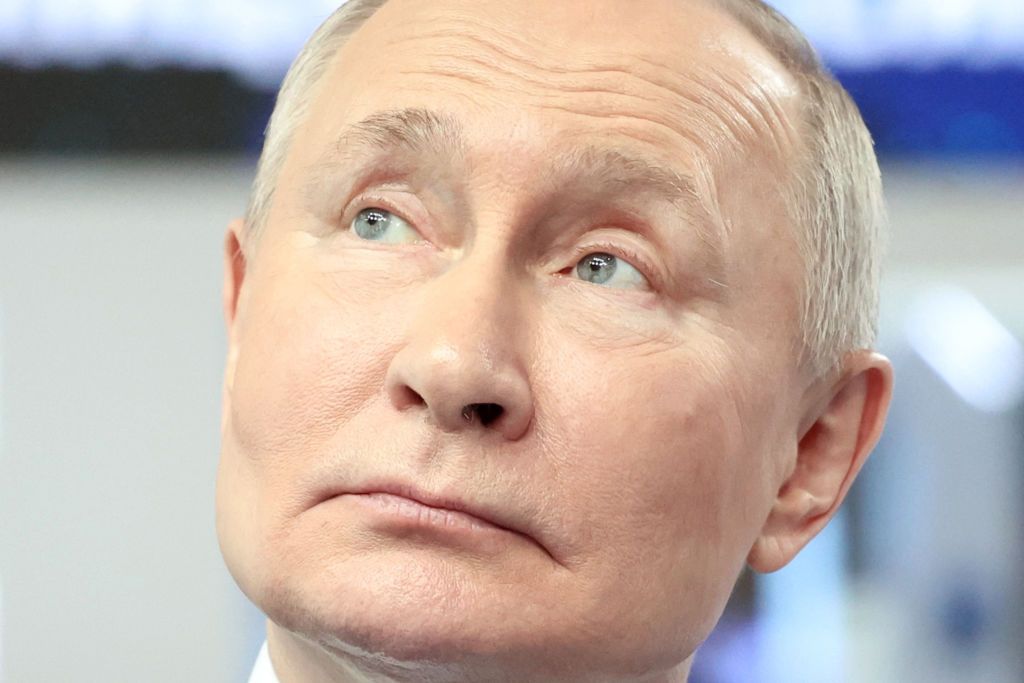Ukraine war latest: Russian attacks on Donetsk Oblast cut power off in 2 mines with 18 workers inside

Key developments on Jan. 7:
- Energy Ministry: Russian attacks cut off power in 2 mines in Donetsk Oblast
- Japan pledges $37 million for anti-drone equipment for Ukraine as FM visits Kyiv
- Bild: Unidentified drones repeatedly spotted over German military bases where Ukrainians train
- Air Force downs 21 of 28 attack drones launched by Russia overnight
Russian attacks in Donetsk Oblast caused power outages at two mines while 18 workers were inside, Ukraine's Energy Ministry reported on Jan. 7.
Russia began intensifying its attacks against Ukraine's cities and critical infrastructure as the temperatures dropped at the end of 2023, mirroring its strategy from last year. Over the winter of 2022-2023, Russia engaged in a persistent campaign to target Ukraine's energy infrastructure, causing large-scale outages and damage to the grid.
The ministry neither specified the status of the workers who were in the mines at the time of the attacks nor the locations of the mines.
Just two days earlier, the ministry reported that Russian attacks at another mine in Donetsk Oblast caused a power outage and 17 miners were forced to spend 16 hours underground until electricity was restored.
Russian attacks also damaged equipment at a thermal power plant in Donetsk Oblast, and the remnants of expended munitions were found by an oil pipeline in Dnipropetrovsk Oblast.
In Kharkiv Oblast, an overhead power line was knocked out by Russian attacks, causing power outages for residents in the area.
The ministry said that the energy system was generally under control and that there were no widespread electricity shortages.
Overnight attack
Ukrainian air defenses shot down 21 of the 28 Shahed-type kamikaze drones launched by Russia overnight, the Air Force reported on Jan. 7.
The Air force said that Russia targeted mainly the south and east of Ukraine. Air defense was also at work above Zaporizhzhia, Mykolaiv, Odesa, Kirovohrad, Vinnytsia, and Cherkasy oblasts during the night.
Seven drones were downed over Dnipro during an attack on the city on the evening of Jan. 6, according to Dnipropetrovsk Oblast Governor Serhii Lysak.
As a result of the attack, an apartment building caught on fire in Dnipro, the State Emergency Service reported.
Six people were rescued from the building by emergency service workers, and there were no casualties. Two high-rise buildings were damaged, and four cars were destroyed.
Russian forces also launched three S-300 missiles against Donetsk Oblast. The military did not specify if the missiles were shot down or struck any targets.
S-300s are Soviet missile systems designed for air defense. Russia has been using the repurposed S-300 to attack targets in Ukraine. Their key difference compared to other missiles is poor accuracy.
The day before, Russian forces attacked Donetsk Oblast, killing 11 people, including five children, and injuring eight civilians, Donetsk Oblast Governor Vadym Filashkin reported on Jan. 6.
The barrage of S-300 missiles hit the town of Pokrovsk and the Myrnohrad community, destroying at least six houses. The governor hasn't specified the number of missiles Russia used to target the area.
Japan pledges $37 million for anti-drone equipment for Ukraine
Japan promised to provide $37 million to a NATO fund for anti-drone equipment, Japanese Foreign Minister Yoko Kamikawa said at a press conference in Kyiv with her Ukrainian counterpart Dmytro Kuleba on Jan. 7.
Kamikawa is in Kyiv as part of a larger visit to Europe.
President Volodymyr Zelensky following the meeting with Kamikawa said they discussed the Ukraine Recovery Conference, the Peace Formula, and the strengthening of the sanctions against Russia.
“Japan is a very important and powerful partner of ours. I am grateful for the level of cooperation we achieved—a true strategic partnership,” Zelensky said on X.
Japan will host a conference promoting Ukraine's economic reconstruction on Feb. 19. Kamikawa's visit involves discussions with Ukrainian representatives on preparations for the event.
Along with the funds for anti-drone equipment, Japan will also provide five mobile gas turbine generators and seven generators to help Ukraine through the winter and likely increase in Russian strikes on energy infrastructure.
Apart from meeting with Zelensky and Kuleba, Kamikawa also met with Prime Minister Denys Shmyhal, who is expected to travel to the event in Japan.
Japanese Prime Minister Fumio Kishida announced during a virtual meeting with G7 leaders in December that Japan was ready to contribute $4.5 billion in additional funds to support Ukraine's recovery efforts.
The Japanese Foreign Ministry also reported in December that it was changing its laws regarding arms exports to allow for the transfer of weapons and would send the U.S. Patriot missiles.
Japanese law still prohibits sending weapons to countries actively at war, but the move could pave the way for the U.S. to replenish its own stocks while sending Ukraine additional missiles.
Bild: Unidentified drones repeatedly spotted over German military bases where Ukrainians train
Unidentified drones have been repeatedly spotted over German military bases where Ukrainian soldiers are training, raising concerns about potential espionage, the German tabloid Bild reported on Jan. 7, citing governmental sources.
At least 6,000 Ukrainian soldiers had trained in Germany as of August 2023, with the goal of 10,000 by the end of the year.
Programs have involved general combat training, as well as instruction on advanced equipment like Patriot air defense systems and U.S.-provided Abrams tanks.
Marcus Faber, a member of Germany's parliament, told Bild that “Drones are regularly spotted over the Klietz military training area, where the Bundeswehr (German military) trains Ukrainians (on Leopard 1 tank).”
Faber said that he suspects Russia is behind the drone incursions, but has no concrete evidence to support the claim because no drones have been intercepted.
Other German lawmakers expressed concern about the government's inaction, as a German military commander publicized the issue as far back as October 2022.
“We must not allow Russia to spy on military training areas with drones,” said Andreas Schwarz.
Faber said that the Bundeswehr has “a huge amount of catching up to do when it comes to drones,” and needs more modern jamming equipment.
















